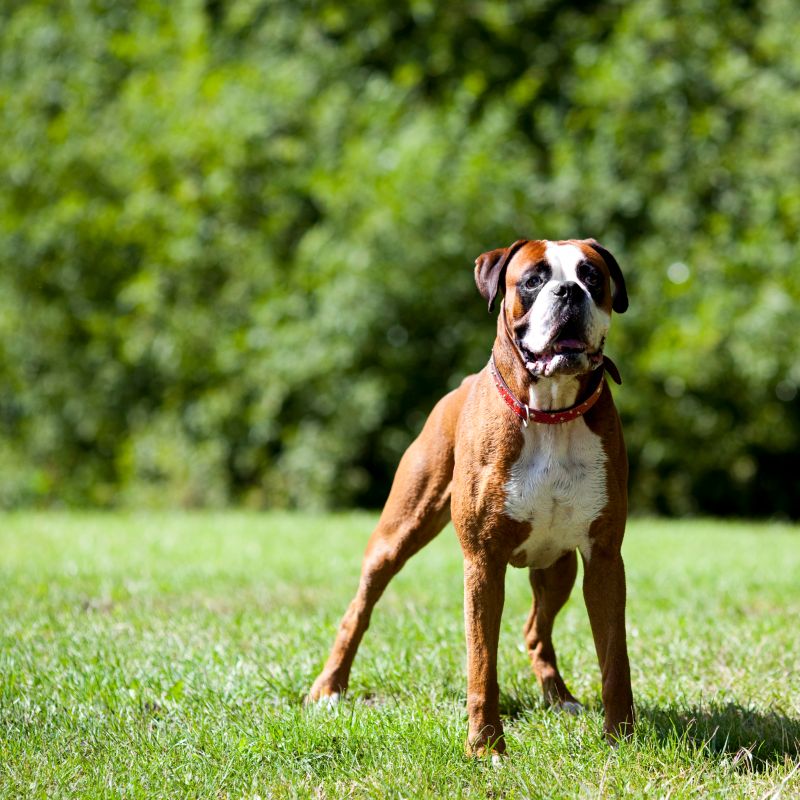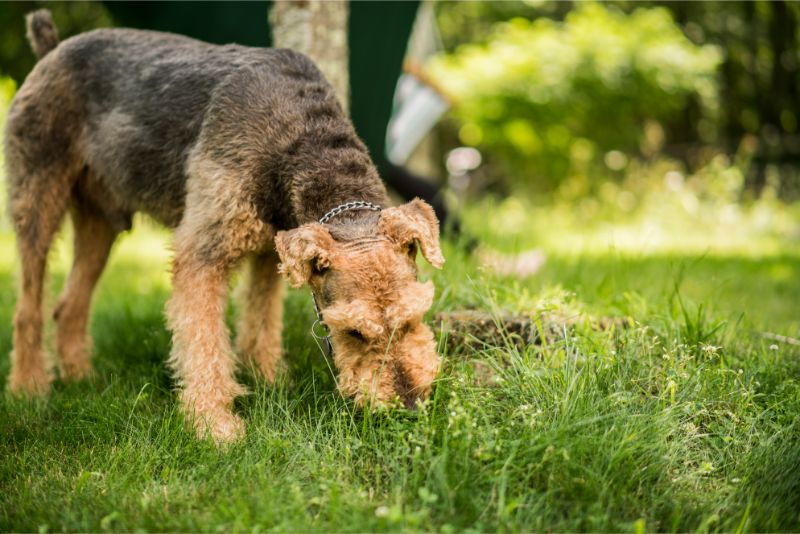
Breed Spotlight: Boxers

The boxer is one of the most beloved and well-known dog breeds in America. Their worried, wrinkled faces belie a loyal companion that’s friendly with people they know, alert around strangers, and always ready for a walk, playtime, or snuggle on the sofa.
West Park Animal Hospital wants to take a moment to shine a light on this fabulous breed!
The History of Boxers
The boxer was first developed in Germany in the 1880’s from an older breed of dog known as “bullenbeissers.” These dogs were kept on large estates to bring down large game and keep cattle in line.
Modern boxers in the late 19th and 20th century were trained as police dogs, guide dogs, and military scout and messenger dogs during World War I.
Personality Plus
Boxers are smart, strong, and fearless. They also enjoy a reputation for having a stubborn streak that’s best met with a sense of humor. They rank eighth in the AKC registry, and the American Boxer Charitable Foundation has raised more money for genetic research than any other breed club in the world.
Boxers enjoy playing with family, friends, and children. They’re wary of strangers and will respond courageously to anything that threatens their family.
Boxers do best with early and consistent training (try starting when your puppy is 8 weeks old). They like looking for loop-holes in the rules and may test their boundaries! A firm, rewards-based approach to training works best with boxers.
Boxer Health
Boxers have a number of health issues. Luckily, boxer breeders are generally very dedicated and aggressive in trying to eliminate genetic diseases. Common issues include:
- Cardiomyopathy
- Aortic/subaortic stenosis
- Degenerative myelopathy
- Bloat and gastric torsion
- Some cancers
- Skin allergies
Some of these conditions can be screened for, but not all will show up in a growing puppy. However, a reputable breeder should be able to show you independent certification that a puppy’s parents have been screened for common defects and deemed healthy for breeding.
The American Boxer Club recommends breeding boxers be screened for cardiomyopathy, hypothyroidism, hip and elbow dysplasia, and aortic/subaortic stenosis. Stay away from breeders who claim otherwise.
Playing with Your Boxer
Boxers are big, physical dogs who love to play. You might try agility training, obedience sports, or other activities that require athleticism. Boxers can also be trained for flyball, frisbee, and some even like to swim.
Whatever activity you choose, remember that boxers are brachycephalic dogs. Their noses are shortened, making them appear almost flat-faced. While not all brachycephalic dogs have problems, the anatomy of their snout and head can place them at risk for breathing problems. Because of this, boxers may have a lower tolerance for vigorous exercise and may be more susceptible to heat exhaustion and heat stroke.
How to Find a Boxer
A good breeder will match you and your lifestyle with the right puppy. They’ll ask you many questions, and they should be open and honest about any diseases in their dogs’ lines.
Unlike other breed clubs, the American Boxer Club doesn’t maintain a breeder database. They suggest a local breed club or show may be a good way to find a reputable breeder. Regardless of how you find your breeder, make sure they follow the American Boxer Club’s Code of Ethics.
Boxer rescues and shelters are another wonderful way to find a pet. Keep in mind, while puppies are awesome, adopting an adult dog also has its advantages! Adult pets will likely have some training and be more settled than a puppy. The American Boxer Club has a rescue network that can help match you with the perfect boxer companion.
If you’re considering adopting a boxer, please let us know. We can provide you with the right resources to give your boxer a life filled with happiness and good health!






